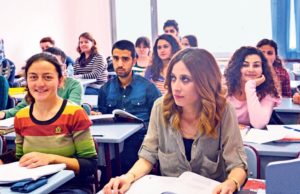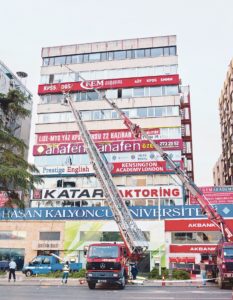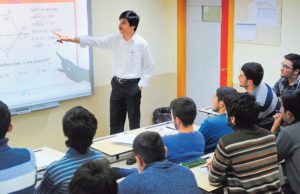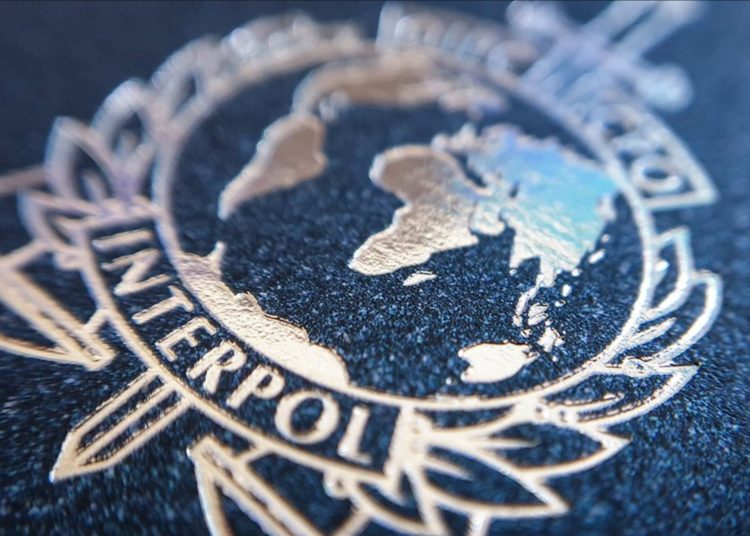Abdullah Bozkurt/Stockholm
The government of Islamist President Recep Tayyip Erdoğan started pursuing a new scheme to bypass International Criminal Police Organization (Interpol) filtering mechanisms after its attempt to list a government critic as a wanted man on false criminal charges.
The government’s plan, disclosed in detail in a document prepared by the Justice Ministry, includes the mobilization of Turkish government resources to lobby the General Assembly as well as the Executive Committee to overcome the General Secretariat’s refusal to allow the international body to be used for a political witch hunt pursued by the Erdoğan government.
The plan is expected to be put in motion during Interpol’s General Assembly, to be held in Turkey in November. Nordic Monitor previously published documents showing how the Turkish president on April 28, 2021 sent a letter to the speaker of parliament underscoring the benefits of hosting the Interpol meeting and how it could help enlist Interpol’s assistance in going after the Gülen movement, a government critic that has been active in education, charity and interfaith dialogue activities around the world.
The operation of Interpol is governed by the General Assembly, at which each of its 194 member countries gets one vote on proposed resolutions. The 88th General Assembly, held in Chile in October 2019, decided Turkey would host its 2021 meeting as a result of intensive lobbying by the Erdoğan government.
Turkish government document confirming that Interpol repeatedly refused to list the Gülen movement in its database, describing it as a violation of the Interpol Constitution:
The two-page Turkish government document obtained by Nordic Monitor reveals how Interpol shut off access to its database by the Turkish police’s Interpol/Europol department after the Erdoğan government flooded the system with politically motivated filings.
The document specifically mentioned the case of Ahmet Kirmiç, who became a target of the Erdoğan government when he was CEO of FEM Dershaneleri (private schools that offer college and university prep courses). FEM, the most popular among all private prep schools, ranked high in the government-run national exams, and its students often received top scores in competitive university and college exams.
Kirmiç and other FEM board members are affiliated with the Gülen movement, a group that is critical of the Erdoğan government. In an unprecedented move in 2013 the government pushed a bill through parliament banning all private prep schools that had been operating in Turkey for decades. The move was criticized by the main opposition Republican People’s Party (CHP), which considered the legislation an attack on free enterprise.
Some pointed out that it would be low and middle income families that would be most negatively affected by the law, as prep schools provide an opportunity for their children to level the playing field in the centralized exams. Others noted the success of Turkish students in both local and international tests such as the Program for International Student Assessment (PISA) would drastically decrease if prep schools were abolished since the education provided in public schools was inadequate.
The government move adversely impacted some 2,107,000 students who were attending 3,640 private prep centers operating at the time in provinces across Turkey.

The government move came right before major corruption scandals that that broke in December 2013, which incriminated key government figures including then-prime minister Erdoğan, his family members and his business and political associates. Erdoğan labeled the graft probes as a coup against his government and orchestrated the removal of judges, prosecutors and police chiefs who uncovered Turkey’s largest-ever corruption scandal in a years-long investigation.
Erdoğan accused Fethullah Gülen, a critic who has been living in the US since 1999, of being behind the graft investigations, a claim that Gülen denied, and made the Gülen movement a scapegoat for anything that revealed government wrongdoing. Taking the issue personally, Erdoğan has waged a war on the movement and vowed to launch a “witch hunt” on the members of the movement and to eliminate it at home and abroad.
Kirmiç, an educator for some 30 years, was caught in this witch hunt as well. In January 2015, Kirmiç’s photograph and personal information were plastered on the front pages of the Sabah and Takvim newspapers, both owned by Erdoğan’s family, and he was depicted as a criminal as part of a smear campaign against critics and opponents. Kirmiç filed a lawsuit against the media outlets for targeting and profiling people on the basis of fabricated accusations.
The CHP also challenged the law in the Constitutional Court, which resulted in its annulment on July 13, 2015. The court ruled that the law closing prep schools was unconstitutional on the grounds that the law represented a violation of constitutional articles related to the right to education and free enterprise. The Erdoğan government, however, did not enforce the ruling.
The government then launched criminal procedures to seize prep schools and other institutions linked to the Gülen movement. FEM was illegally taken over by government-appointed trustees in 2016, and Kirmiç and others who ran the prep schools faced terrorism charges on dubious evidence. It was clear that the government was abusing the criminal justice system to punish its critics.
The Erdoğan government added coup charges against Kirmiç in the aftermath of a false flag coup attempt in July 2016 although there was no evidence in the case file suggesting that he had somehow been connected to the putschist attempt, which was believed by many to have been a plot orchestrated by the Turkish president himself to set up the opposition for mass persecution and a purge of nearly 150,000 people from government jobs.
Trade registry records listed Ahmet Kirmiç as CEO of FEM Prep schools in November 2014:
Kirmiç fled Turkey to escape imprisonment on false charges, and the Turkish government then turned to Interpol to hunt him and many others linked to the Gülen group down. However Interpol rejected the Turkish submissions, citing violation of its rules, and shut off Turkish police access to its database when Turkey flooded the system with too many filings.
In response the Turkish government sought ways to bypass the restrictions and restore the access. The Turkish government document that reveals proposed actions to overcome the block imposed by the Interpol administration bears the signature of Murat Erdem, head of the Justice Ministry’s General Directorate for International Law and Foreign Relations. It was circulated to various branches of the government.
The document, dated June 10, 2018, was apparently prepared after the Interpol General Secretariat informed the Turkish government in a letter on May 4, 2018 that the summary filings by Turkish authorities against 115 people including Kirmiç who were believed to have been affiliated with the Gülen movement were not acceptable. It also warned against new filings against these people, citing violations of the Interpol Constitution.

The General Secretariat’s letter specifically referred to Article 3 of the Interpol Constitution, which says, “[I]t is strictly forbidden for the Organization to undertake any intervention or activities of a political, military, religious or racial character.” It added that all filings made by the Turkish Interpol department would be deleted and urged it not to file new requests.
Despite Interpol’s warning, Turkey tried to submit a new filing for a Red Notice against Kirmiç and received a refusal from the General Secretariat. The Turkish government document states that similar filings had also been rejected by Interpol since 2016.
The Justice Ministry official wrote to the Ankara Chief Public Prosecutor’s Office and the Interior Ministry, saying that a new tactic must be devised to circumvent the ban imposed on Turkey by Interpol. He claimed Interpol’s rejection of filings for members of the Gülen movement was groundless and could not be justified under the Interpol Constitution.
Erdem underlined that Article 135 of Interpol’s Rules on the Processing of Data provided an opportunity for Turkey to make its case and get what it wanted. Article 135 refers to the settlement of disputes over the use of Interpol mechanisms and states that “Disputes that arise in connection with the application of the present Rules should be solved by concerted consultation. If this fails, the matter may be submitted to the Executive Committee and, if necessary, to the General Assembly.”
He urged the Erdoğan government to lobby the General Assembly as well as the Executive Committee to bypass the restrictions and bans imposed by the General Secretariat on fraudulent filings to harass its critics and opponents.
Some of the critics targeted by the Erdoğan government have been living abroad for decades and hold citizenship other than Turkish. Others were forced to go into exile in order to escape wrongful prosecution and unlawful imprisonment on fabricated evidence. Most of the charges the Erdoğan government levels against critics are based on anti-terror laws, including defamation and coup charges that are often abused by the criminal justice system to punish opponents, critics and dissidents who have done nothing more than express opposing views of the government.

The Turkish government has not only abused Interpol’s Notices system but also its messaging and diffusions, especially Lost and Stolen Passports, in order to keep pressure on government critics abroad.
Nordic Monitor previously published documents showing how the Finnish Interpol service denied Turkey’s request to deport a political asylum seeker after a diffusion, which refers to a notice sent by the Interpol section of the Turkish national police, was used against a Turkish national resident in Helsinki. The document showed that the Turkish police triggered the Interpol diffusion process in the absence of a judicial decision. Similar notices were filed against others in Belgium, Poland and Germany, in some cases targeting exiled journalists who fled Turkey to avoid wrongful imprisonment. Turkey is one of the world’s leading jailers of journalists, with 174 journalists currently in Turkish prisons according to the data recorded by the Stockholm Center for Freedom.
The most well-known case of the Turkish government’s abuse of Interpol mechanisms took place in 2017 when Enes Kanter, an NBA basketball star of Turkish origin, had barely escaped arrest while in Jakarta, where he stopped as part of a global goodwill tour on May 19, 2017. Kanter was detained on May 20, 2017 at Henri Coandă International Airport in Bucharest because his passport was reported to have been cancelled by the Turkish government.

The NBA star was subsequently released after the US government and NBA officials intervened on his behalf. In 2019 Turkey tried to put the NBA star’s name on the Red Notices list, prompting Kanter to decline to join his then-team, the New York Knicks, on a trip to London for an NBA game in early January 2019. Kanter currently plays for the Boston Celtics.
Since 2015 the Turkish government has cancelled the passports of some 650,000 people who are alleged to have been affiliated with the Gülen group. The revocation of passport privileges was also extended to spouses and children in an unprecedented campaign of intimidation that is claimed to be the largest witch hunt against government critics in Turkish history.
When their nationals of Turkish origin were detained in Spain in 2017 on a fraudulent Red Notice requested by Turkey, the German and Swedish governments immediately reacted and brought these political cases to the attention of the European Union, which later took action by asking Interpol to prevent such abuse. The EU as well as the Council of Europe raised the question of violation of the Interpol Constitution by Turkey through filing cases that did not warrant any criminal action but were rather seen as politically motivated harassment tactics.












